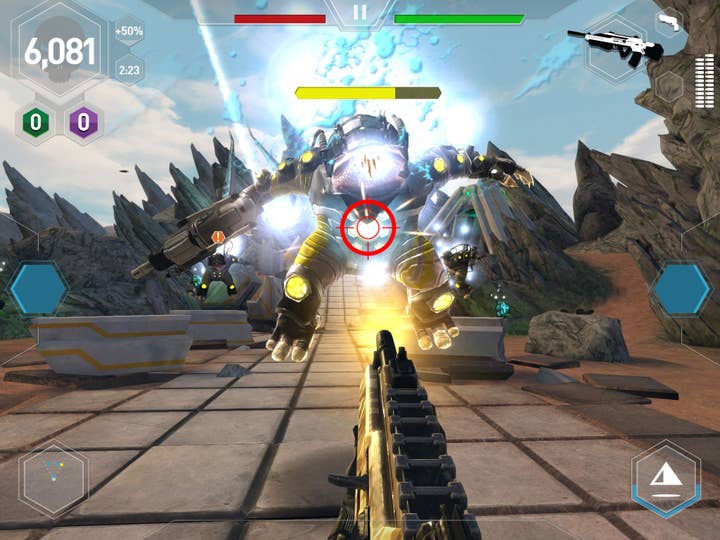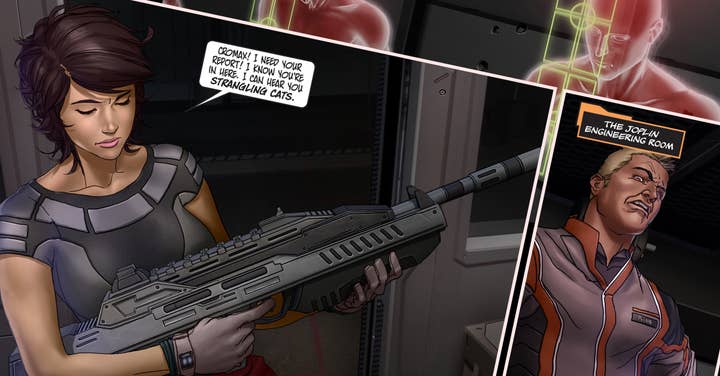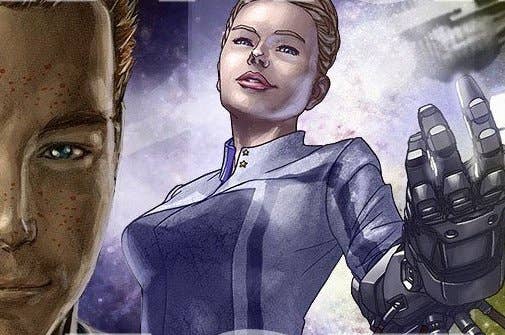Bungie jump to free-to-play: Midnight Star
Seropian's Industrial Toys is ready to launch its first game
Three men walk into a studio, the founder of Bungie, a Halo designer and a comic book super nerd with a background in game design and the dark arts of marketing. After years of hard work and plenty of teasing Industrial Toys is ready to launch space shooter Midnight Star on Thursday.
"This is really the beginning for us, not the end," says Alex Seropian, once founder of Bungie, now the CEO of Industrial Toys.
"It's so different than how we used to build games in the $50 DVD model where you put as much stuff into the game as possible to justify the $50 price and then you're done."
"Now you put it out there and it's for free and players are so promiscuous they'll try everything and they're looking for reasons to put money in, not looking for value to get out. So it's a very different model for us. The most exciting thing about it is that we'll be able to see what players like in real time and react to it and keep developing on what we start with."
So far, so free-to-play, but Industrial Toys really is doing something different with Midnight Star. For a start there's the companion comic, Midnight Rises, which ties into the game and has some real comic book chops thanks to Hugo-award winning author John Scalzi and Uncanny X-Men artist Mike Choi.
The other big difference is the mentality; Industrial Toys are looking for longterm engaged players, not quick win idiots who will spend $30 on a diamond hammer and never return.
"I've got to admit I'm a little bit torn on the whole idea that there are these gaming ecosystems where there are players dropping tens of thousands of dollars on a game. Sounds a little unhealthy to me, just personally," says Seropian.

"If you're doing something everyday and playing and there's a mechanism for you to get better at the game and be competitive at the game and support that with extra things that you might want to do and there's monetisation tied to that, that sounds a lot more healthy to me."
The plan is to give players all the AAA goodness, none of the upfront fees and then use buttery smooth mechanics and tournaments and content to win over their wallets. Paul Bertone is the man for that job, with nearly 12 years under his belt at Bungie on Halo and Destiny.
"I'm a little bit torn on the whole idea that there are these gaming ecosystems where there are players dropping tens of thousands of dollars on a game"
"The conversations we've been having recently are really just making sure that whatever our fans want, whatever the people that are playing the game are doing the most, we want to make sure that's the kind of content that we're able to serve them," he explains.
"Destiny is a good example, they have their release cycles and then they have a bunch of data-side changes that they make on a daily and weekly basis just to keep people coming back to the game, keep people invigorated.
"I think that's a big change from even previous Bungie games and a lot of games that are out there. Typically on consoles a game comes out and three years later the next game comes out and that model is just so foreign to all the conversations that we've been having."
Key to keeping players engaged is of course keeping them for more than five minutes. In a world where you can download and play a thousand free games without spending anything but time that initial launch experience is vital. That's been a key discovery for a team with a AAA background.

"We fussed around a ton with what that first launch experience was like and it went all the way from you'll tap the icon, launch the game, then we're going to show you this really cool CG video of the story and exposition and then there'd be a tutorial sequence and blah blah blah," says Seropian.
"We found that a lot of people liked that but there were a lot of people who had 30 seconds to make up their minds and they didn't get to play the game in the first 30 seconds because they were watching a movie, a CG that we made, so they were out."
The game soft launched in a few territories a while ago so the team have had lots of data to play with. Where are people dropping out of the game? Is it too hard? (It was, they changed it.) Are there any device issues?
"If we can get everybody playing one encounter a day I think we've been very very successful"
"You have to get good at hearing, you know, that some of your children are ugly or whatever. That's part of how you make it better."
Once the game launches in the App Store on Thursday there'll be a whole new load of data for the team to play with, so what are they hoping to see?
"This is going to be a very intense online game as well as an action-packed shooter that you enjoy offline so we will probably be biting our fingernails. We're going to be dealing with the community that day, we're going to be talking about it a whole bunch, we will be very much on the job that day," says Tim Harris, company president.
"I'm hoping that we get people playing every single day," says Bertone.
"What's something we can do every single day to keep people engaged in the game? For people that maybe wouldn't play every day, how can we give them back four or five minutes? If we can get everybody playing one encounter a day I think we've been very very successful."
Midnight Rises is available now and Midnight Star will appear in your neighbourhood App Store on Thursday.


